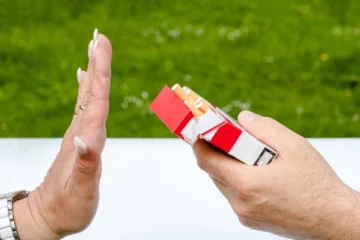There are 2 things that people find difficult to do without help: changing and letting go.
Most people are aware how hypnotherapy can help people change their habits (stopping smoking, curing phobias, etc), but few people realise that it can also help them drop unwanted negative emotional baggage.
The negativity backpack
During our lives, we accumulate negative and positive experiences. In a healthy person, those experiences get processed, stored or discarded depending on their usefulness. Sometimes, those experiences are too overwhelming, like an accident or a physical attack. It could also be constant over a long period of time like an abusive relationship (either romantic or parental), or bullying. Or simply, you are not well enough to use healthy coping mechanism.
When those experiences are not processed adequately, you keep carrying the memory and the various emotions attached to it. So you end up with a metaphorical backpack full of negativity. It could be a boulder-like single event, or an accumulation of rubble. Either way, this is slowing you down, dragging you back, and you’re carrying it with you all the time. Your brain hopes to find time to sort it out later. Then, when the mind notices you’re having some downtime, it takes the opportunity to revisit all those negative emotions. This downtime could be when you’re trying to go to sleep, or simply when you’re not distracted enough by your everyday activities. This can lead to flashbacks or ruminating about all those horrible or negative experiences. And if we can’t process them then, the brain will keep trying again and again and again. The more you try to repress and bury them, the harder they come back.
It’s easy to end up stuck in a loop, and the thought of dealing with this bag of emotions will, in itself, become stressful and add to your anxiety. That’s why people start to do whatever they can to either make themselves feel better or choose to numb themselves in any way they can. This can lead to addiction to food, alcohol, drugs (legal or otherwise), sex, or whatever can take their mind off those worries. In this case, the addictions are not the problem, they are merely symptoms of a deeper issue. If you decide to tackle those addictions without dealing with the root cause, it is very likely that the addiction will be replaced by another.
How can hypnotherapy help?
Hypnotherapy will not make you forget what happened, no matter how much you wish it did. What it can do however, is help you keep it in the past where it belongs and stop it from interfering unduly with the present.
During the session, the hypnotherapist will help you identify the root cause. He or she doesn’t need to know what it is, you can keep that entirely private. Depending on the type of emotional baggage you want to deal with, there are several models of therapies that can help you deal with it.
In the case of a specific event or trauma, a skilled therapist will make sure you don’t have to re-live and re-experience it. What they can do is help you review that memory from a safe place, dissociated from it, and flatten the negative emotional charge. It won’t change what happened, it won’t make you forget, but you will be able to look at that memory in a rational way. It’s like grounding an electrical device so that you don’t get an electric shock each time you turn it on. You keep the memory and all the associated learnings and lessons, but you don’t have to feel the emotion every time you access it. And because you’ve processed it, your brain will be able to leave it alone instead of making it pop back randomly.
Sometimes, the bag you’re carrying is just an accumulation of negative junk, that you didn’t have time, energy or skills to process at the time. It’s a bit like hoarding and you end up with a lot of junk and clutter that, deep down, you know you don’t need. Whether it is guilt, anger, shame, etc, you might be holding on tight to something that only affects you because you are holding onto it. The heavy bag is digging into your shoulder, hurting you, but it is of no use to anyone. In that case, the therapist will help you get in a mental space and state where you can just let go of all that junk, throw everything you don’t need in a metaphorical skip, or just drop it there and then. You can then move on feeling freer and use your energy toward something more constructive.
Quite often, it is a bit of a mixed bag and your therapist would then use a combination of techniques to help you. The most important thing is that it doesn’t have to take weeks and months of therapy to start feeling better.
By allowing yourself to unburden yourself from your past, you will be surprised how quickly you’ll start to feel happier and find your own peace.
Some people suffering from deep and traumatic experiences feel like they are beyond help, that nothing will get better, they are to be burdened with it forever. If this is the case, you especially need to reach out for help. Some people will need time and further help to fully heal, but you can quickly start to feel drastically better. It takes a lot of strength to live daily with all that negativity and keep moving on despite of it. By letting go, that strength can be fully used to help you heal and rebuild yourself and move forward more freely.
So, if you use your addiction to medicate yourself, or want to let go of the past, seek help.


